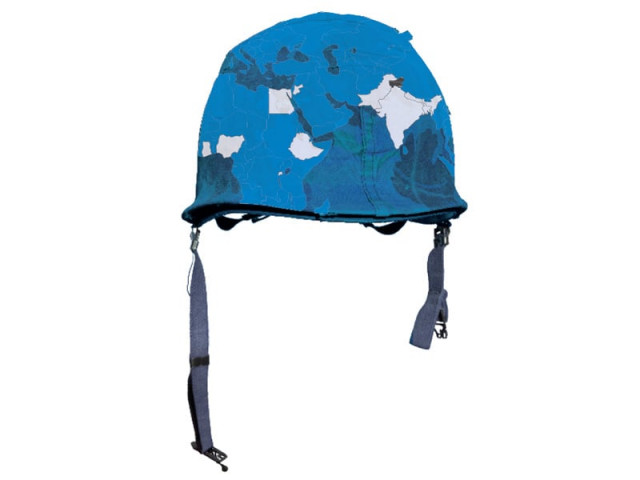International Day of UN Peacekeepers: Lost in the line of duty and peace...
Ultimate goal of any peacekeeping mission is to no longer be necessary, says UN chief.

With 193 member states who contribute personnel, equipment and funds, the United Nations’ global peacekeeping mission has almost 120,000 peacekeepers serving in 17 missions in some of the world’s most volatile and dangerous environments currently.
Commemorating the International Day of United Nations Peacekeepers today, UN Secretary-General Ban Ki-moon said in a statement: “Today we honour the memory of the more than 2,900 peacekeepers who have lost their lives in the line of duty over the years, and we pledge to carry on their work to bring stability to war-ravaged countries.”
In 2011, 112 men and women died with another 27 peacekeepers losing their lives in the first four months of this year. Since 1948, when the first UN peacekeeping mission named the “United Nations Truce Supervision Organisation”, began operations in Palestine, nearly 3,000 “Blue Helmets” have died devoting their lives to peace.
“I am deeply grateful for every contribution of troops and police, as well as for the financial and material resources that make peacekeeping possible. I also thank all countries that provide political support and leadership,” he said.
As of April 30, Pakistan is contributing 9,401 police, UN military experts on mission and troops — the second largest number of peacekeepers in the UN missions after Bangladesh.
Currently, Pakistan has 766 police officials, 97 military experts on mission and 8,538 troops serving as peacekeepers around the globe — making it the largest contributor of troops by a single country by 2012.
In terms of personnel, Bangladesh remains the biggest contributor with 9,949 personnel followed by Pakistan, India (8,133) and Ethiopia (6,315). In terms of providers of assessed financial contributions to UN peacekeeping operations from 2010–2012, the United States remained the highest contributor with a 27.14% share, followed by Japan (12.53%) and the United Kingdom (8.15%).
The UN peacekeeping has a global logistics operation with almost 46 airplanes, 12 ships, 147 helicopters, 33,437 vehicles, 22 hospitals and 252 medical clinics operating all over the world, a UN official told The Express Tribune.
“The ultimate goal of any UN peacekeeping mission is to no longer be necessary. Until we reach that objective, we make every effort for peacekeeping to be as effective and efficient as possible,” said Ban.
Since its formation in 1948, the UN peacekeeping mission has conducted 67 peacekeeping operations worldwide and currently 16 operations are under way in different parts of the world — with the largest UN peacekeeping mission in Darfur with almost 27,892 personnel.
In his concluding remarks, the secretary general said: “On this day, let us remember the sacrifice of those who have served, and let us pledge to strengthen the global partnerships that make our blue helmets a beacon of hope to millions of people around the world.”
Published in The Express Tribune, May 29th, 2012.



















COMMENTS
Comments are moderated and generally will be posted if they are on-topic and not abusive.
For more information, please see our Comments FAQ